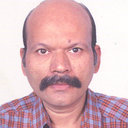Inflammatory breast cancer: a single centre analysis.
الكلمات الدالة
نبذة مختصرة
BACKGROUND
Inflammatory breast cancer (IBC) is an aggressive form of locally advanced breast cancer characterized by rapidly progressive breast erythema, pain and tenderness, oedema and paeu d'orange appearance. It accounts for 1-3% of all newly diagnosed cases of breast cancer in the west. Data on IBC from India are lacking. The aim of our study was to assess the clinical-pathological parameters and outcome of IBC at, All India Institute of Medical Sciences, a large tertiary care centre.
METHODS
We screened 3,650 breast cancer cases registered from January 2004 to December 2012 and found 41 cases of IBC. Data included demographics as well as clinical, radiological and histopathological characteristics, and were collected from clinical case records using the International Classification of Diseases code (C-50). Patients who presented with IBC as a recurrence, or who had a neglected and advanced breast cancer that simulated an IBC were excluded from this study.
RESULTS
The median age was 45 years (range 23-66). The median duration of symptoms was 5 months. The American Joint Committee on Cancer stage (AJCC) distribution was Stage III - 26 and IV - 15 patients. Estrogen receptor (ER), progesterone receptor (PR) positivity and human epidermal growth factor receptor 2 (HER2/neu) positivity were 50%, 46% and 60%, respectively. Triple negativity was found in 15% of the cases. All the non metastatic IBC patients received anthracycline and/ or taxane based chemotherapy followed by modified radical mastectomy , radiotherapy and hormonal therapy as indicated. Pathological complete remission rate was 15%. At a median follow-up of 30 months, the 3 year relapse free survival and overall survival were 30% and 40%respectively.
CONCLUSIONS
IBC constituted 1.1% of all breast cancer patients at our centre. One third of these had metastatic disease at presentation. Hormone positivity and Her2 neu positivity were found in 50% and 60% of the cases, respectively.



